It is not power that corrupts but fear. Fear of losing power corrupts those who wield it and fear of the scourge of power corrupts those who are subject to it.
Aung San Suu Kyi, Freedom from Fear
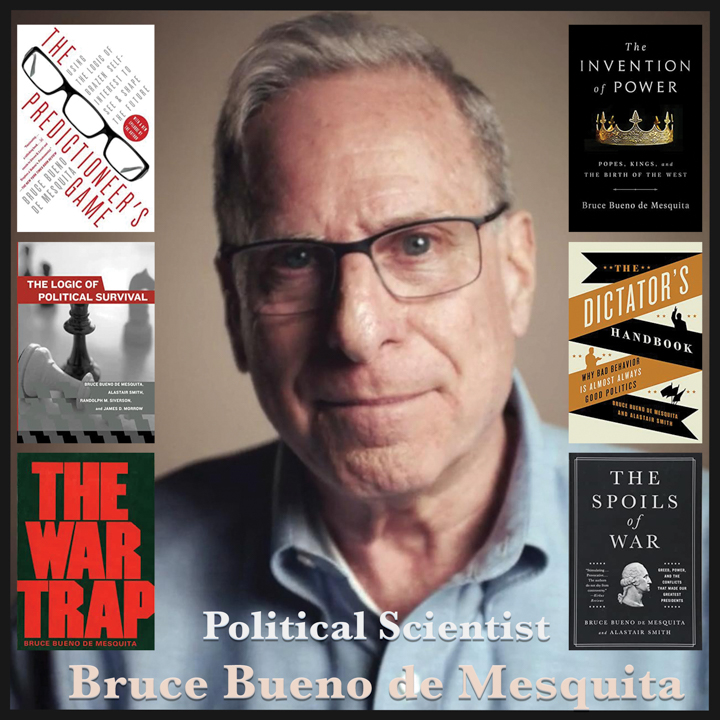
By Robert Simmons
Anyone trying to solve the human equation will discover that A) there are very few variables and B) the Constant is always Fear (F). Sadly, the same fear that induces all our suffering also hinders us from overcoming it.
To make the systemic changes necessary to promote a healthier society, each of us must confront the fear that both drives and stifles us; until we rise above it, we will not be able to see our way around it.
In the following article, we utilize the expertise of Bruce Bueno de Mesquita, to better understand how fear honed over millions of years translates into predictable political outcomes today; as always, we will attempt to show how our awareness of such fundamental truths could be utilized to our advantage, if we so choose.
Everything has a surface; it is the first thing—and sometimes the only thing—we see. All surfaces reflect, and for this reason, the only thing we can see by looking at the surface of things is our own reflection. To truly understand something, we must dig below the surface, and when we do, quite by accident, we will come to understand ourselves more deeply as well.
Bob Simmons
Introduction
That which hath been is now; and that which is to be hath already been.
Ecclesiastes
Fight, Flee, Consume, Replicate—in other words, survive long enough to reproduce; that is the mission statement of all organisms.
One look at humans tells us that we are not physically imposing compared to most predators; we possess no natural weapons like sharp teeth or claws. Initial survival had to be done through flight more than fight; those who survived were likely in a perpetual state of vigilance, motivated by what we would now describe as constant feelings of fear or anxiety—aka ‘uncertainty’.
Observation, appropriation, assimilation—the precursors of science, biomimicry, and engineering—led to fashioning sharp tooth and claw-like weapons, first used for defensive purposes, but later to kill and eat those animals that used to kill and eat us.
Thus, we evolved into the role of predator, which we learned by first having been the prey.
This was the inevitable first step in creating the current hierarchy of oppressive Control: that it is better to be the predator than the prey. While these tools of oppression were being forged, the tools of cooperation were also hard at work attempting to control the space around us, to ward off hunger, the elements, predators, and eventually, our own kind.
The world can only be improved if we first understand how it works and why. Working out what makes people do what they do in the realm of politics is fundamental to working out how to make it in their interest to do better things.
Bruce Bueno de Mesquita – The Dictator’s Handbook
In this lifelong battle to overcome uncertainty, we compulsively evaluate all things based on their utility as a ‘resource’ or an ‘asset’, in order to obsessively ‘assimilate’ them (to create a familiar—and thus comforting—‘sameness’).
Every success is reinforced with a pleasant D.O.S.E of happiness, thus encouraging a constant pursuit of more certainty—in this way, we are inexorably pulled and pushed into this one-dimensional role we mis-label ‘rational’ self-interest.
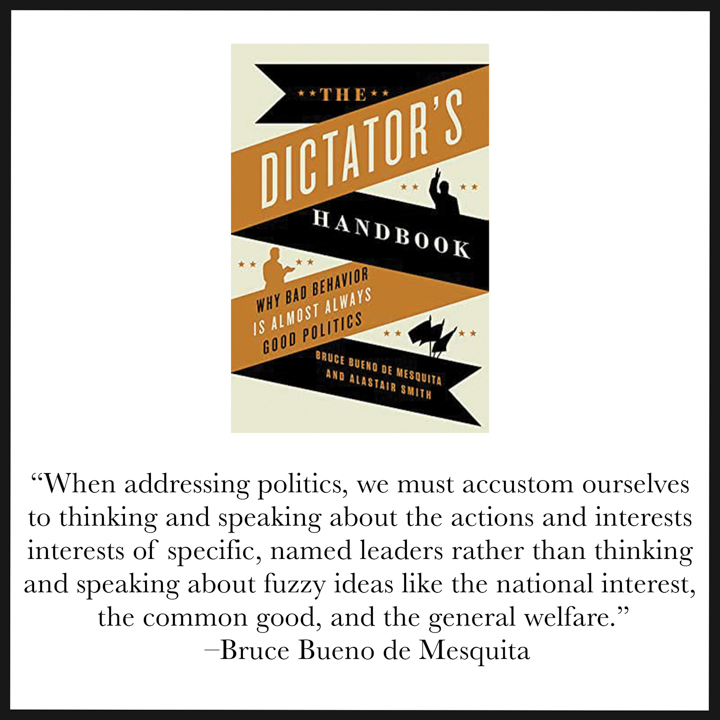
Science has continued to evolve as a useful tool for digging below the surface of things; engineering has evolved alongside it, as a tool for utilizing these scientific observations toward alleviating uncertainty (or pursuing certainty, depending on whether you vote democrat or republican).
Economics was created to effectively and efficiently allocate resources and utilize assets, and government was established to manage this process for larger and larger groups of people.
For a species so thoroughly obsessed with effectiveness and efficiency, it makes no sense that we still have not effectively and efficiently alleviated the uncertainty of many sections of the human population.
Bruce Bueno de Mesquita
Enter Political scientist Bruce Bueno de Mesquita, who has directly and indirectly worked on advancing Democracy for most of his career.
By observing the behaviors of governments past and present—from the quantum-level of sovereign decision-making to the ‘general relativity’ of what their policies produce—Bruce has determined a Political Theory of Everything, and successfully tested it, predicting (with 90% accuracy, according to declassified CIA documents) various political maneuverings at both the national and international level.
By observing the behaviors of governments past and present—from the quantum-level of sovereign decision-making to the ‘general relativity’ of what their policies produce—Bruce has determined a Political Theory of Everything, and successfully tested it, predicting (with 90% accuracy, according to declassified CIA documents) various political maneuverings at both the national and international level.
Bruce can predict the choices of rulers in any political drama because the basic script doesn’t change much, and the motivation of the actors is always the same: get control, then keep control. In any life and death drama, people are limited to choices that facilitate their survival; this creates a one-dimensional role that plays out based on the setting (or environment). Despots who hope to stick around awhile cannot afford to go ‘off-script’.
Governments do not differ in kind. They differ along the dimensions of their selectorates and winning coalitions…The beauty of talking about organizations in [these] terms …is that these categories permit us to refrain from arbitrarily drawing a line between forms of governance, pronouncing one “democratic” and another “autocratic…or any of the other mostly one-dimensional views of politics expressed by some of history’s leading political philosophers.
Bruce Bueno de Mesquita, The Dictator’s Handbook
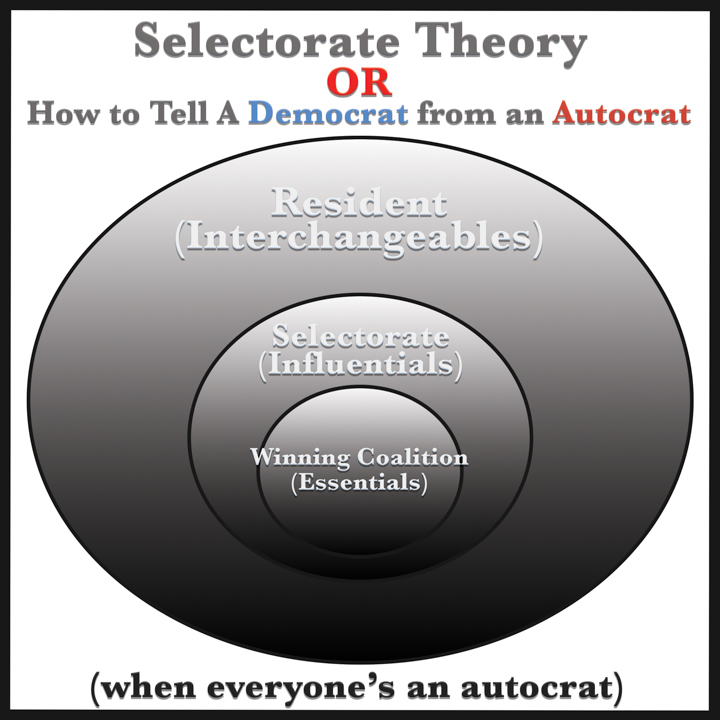
In Bruce’s Selectorate Theory, autocracies, democracies, capitalist corporations—every entity that requires hierarchal governance or leadership to function—can be placed on the same continuum, because all share a common motivation to gain and maintain Control.
How much this Control is going to cost depends on the size of the “coalition” necessary for a leader to gain and maintain it.
In autocracies, those who would be king need only pay off a moderate coalition of ‘loyal’ henchmen to gain control, and even less to maintain it (which Bruce refers to as “shrinking the winning coalition” once Control has been established).
Autocracies are appealing because they are financially sustainable for those in charge (meaning they are cheaper to maintain).
Selectorate Theory explains why capitalist businesses pay CEOs 254 times more than the average employee (who are ‘a dime a dozen’ because they are “interchangeable”); it is also why capitalists have no conscience about overcharging the public for any product or service in which monopoly control has been established (price-gouging, inflation, rent seeking, etc.) and this is why America, when doing ‘business’ worldwide, prefers to pay dictators off than negotiate with other democracies, who have larger coalitions to please.
Countries with resources are “cursed” because America is unwilling to risk losing access to any of it; we have attempted to place dictators in charge of resource allocation an estimated 125 times. Why? To ensure those resources are allocated to us.
Meanwhile, prosperity within these autocracies is limited to the ‘chosen few’ who can guarantee a leader’s continued control.
It is for this reason, Bruce concludes, that Democracy offers the best chance for greater overall prosperity, as leaders are beholden to a much larger “winning coalition” if they hope to get elected. At this time, a presidential candidate in America needs the vote of 9% of the country to be nominated and 18% to get elected (this percentage represents the 73% of Americans who are eligible to vote, times the 54.8% of them who actually do, times the fact that a candidate only needs to win 45% of that amount, thanks to our ‘electoral college’; a third party could theoretically lower that percentage even further, which is why many are fearful of adding one).
Bruce’s findings conclude that in order to secure prosperity for the maximum number of people, a foundation of Democracy must be laid down first; trying to peddle prosperity first only leads to the prosperity of those in control, and never leads to the implementation of Democracy.
The message? Democracy first. It sounds reasonable enough, yet here in the alleged birthplace of Democracy, U.S. foreign policy has consistently pursued the opposite agenda. In trying to see the bigger picture of what is happening, the first (and most difficult) step is to open-mindedly reflect upon all relevant information—no matter how contrary or inconvenient—so as not to risk drawing incorrect or incomplete conclusions, which will lead to incorrect or incomplete solutions.
Bruce has supplied us with an important piece of the puzzle by assuring us that “no,” the world is not the way it is because of “fuzzy ideas like the national interest, the common good, and the general welfare,” but driven by the motivation of a few (possibly psychopathic) personality types bent on grabbing and holding onto Control purely for the sake of having it. Unless pressed, most leaders do not lead their people in any way; they ignore all but those few who can help them maintain Control. So why have they been allowed to assume a leadership role?
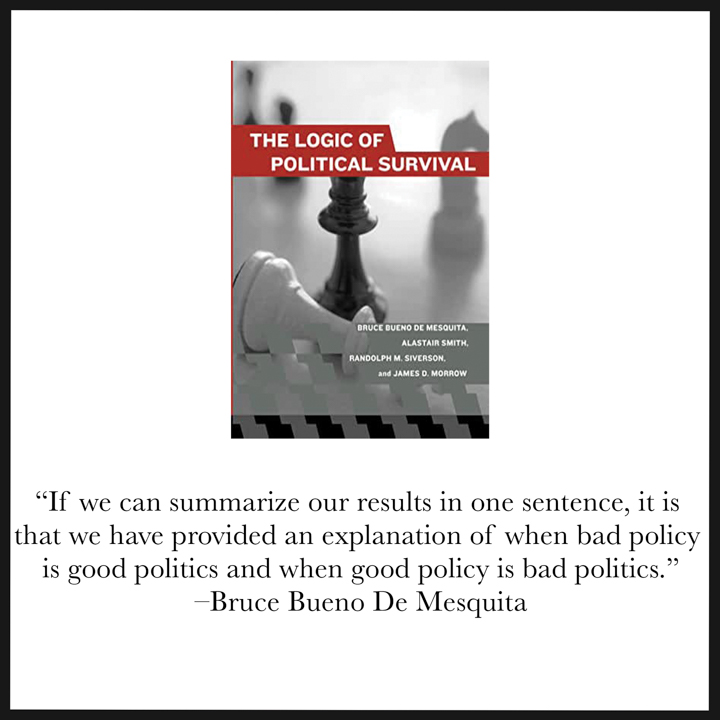
The Third Option concludes that America has been taken over by a Capitalist oligarchy, whose usual tactic (honed over the last 75 years) has been to dismantle democracies and replace them with puppet dictatorships, but thanks to the prior establishment of U.S. Democracy, however rudimentary.
Capitalism has been forced to utilize trench warfare, effectively stalemating the people’s ability to utilize their government toward alleviating Capitalism’s debilitating side-effects.
If Oppression was the most effective and efficient system for managing people, or helped us in any way to reach our highest potential as a species, The Third Option would not bother speaking up, but Oppression is a weakness, not a strength.
It does not propel us, it holds us back. Just because we appear to be moving, does not mean we are moving fast enough to dodge the evolutionary bullet that is currently heading our way. Our planet makes an excellent graveyard to inter the bones of all those who tried to rule before us.
Time is not empathetic; if we fail to properly play the hand we have been dealt, It will simply reshuffle the deck and deal again. Granted, evolution is a bitch; luckily, we were genetically purposed to swim upstream against the current of Time, and lay our eggs. It is literally a ‘drag’ that the weakest among us continue to thrash around, oppressively pulling the rest of us down with them. Perhaps someone could lead us, or at least offer swim lessons.
The Third Option solution would be to:
- Create an upgraded version of democracy complete with proactive security protection against future hostile takeovers; once this operating system upgrade is in place,
- Run a more compatible economic application than the one we are currently using.
Yes, there are oppressors in our way, and they obviously like the system they have created for themselves, so we should not count on them to change it for us. Luckily, the people have a weapon against oppression; the only problem is that it takes over two-thirds of us to lift it and fire it, and we still do not even know which way to aim it. Since America has waited 256 years already, it can probably wait another twenty minutes in order to educate themselves on some basic weapons training.
As Bruce points out, one must have democracy in order to get democracy, and how much democracy America has right now is in question. Utilizing Bruce’s ‘Rules to Rule by’ we will first diagnose how much—if any—democracy still exists, before we offer prescriptive solutions for how to fire this weapon.
How to Maintain Oppression in 6 Easy Steps
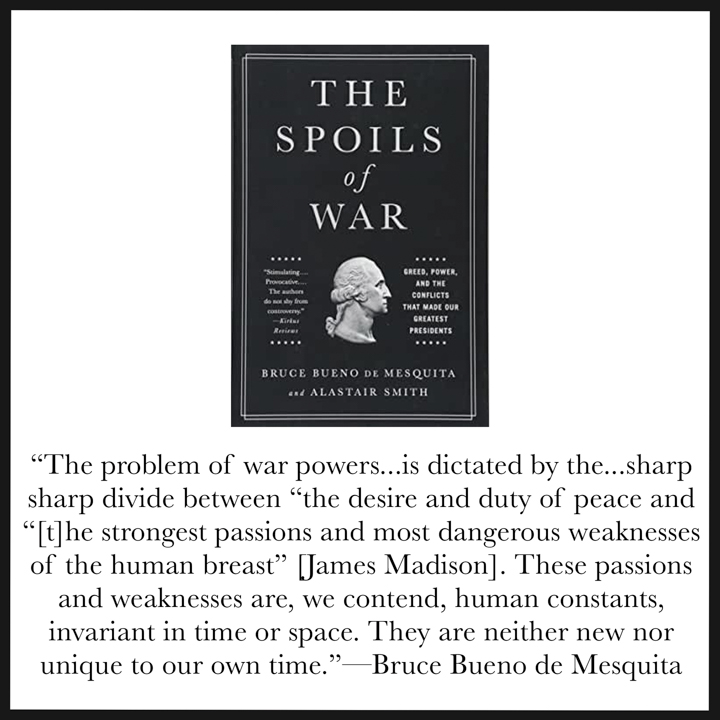
At the end of World War II, the victors deposed the leaders in many of the vanquished states…The Americans, with the support of the British and the French, imposed democracy on Germany and Japan, going so far as to write their constitutions for them. Yet at the same time these very countries heartily resisted the creation or promotion of democratic institutions in their own colonial territories and frequently backed and bolstered dictators in Africa, Latin America, and elsewhere.
Bruce Bueno De Mesquita, The Logic of Political Survival
1. Once in Control, Shrink the ‘Winning Coalition’
In 1945, with the world up for grabs, the U.S. gathered its “winning coalition” of countries together—England, France, West Germany, Japan—to make the world safe for Capitalism, not Democracy.
By the Reagan years, it became open policy for the U.S. to back authoritarian regimes because unlike communist countries, they “shared American beliefs in open economic systems” that would further the spread of capitalism.
Political Scientist Jeane Kirkpatrick—our ambassador to the U.N. during the Reagan years—switched camps from socialist to eventual anti-communist neoconservative because she felt socialism represented “an effort to change human nature,” which she believed is forever trapped in rationalized self-interest (Bruce’s theory is based on this same premise). She “found no reasonable ground to expect…governments to transcend permanently their own national interests for those of another country.”
This statement exposes at least two flaws in Kirkpatrick’s thinking:
- First, that ‘national interests’ exist (Bruce argues that only the individual interests of the ruler and his coalition drive government decision-making)
- Second, that any equally-created individual would (or should) ever willingly subjugate their interests to someone else.
This same flawed thinking has plagued the U.S. from its inception:
- Native Americans, Mexicans, Africans, Latin Americans—none would willingly subordinate their “interests” in order that we might enrich ourselves at their expense—so we had to ‘assimilate’ them.
Entire countries are much harder to assimilate—unless you have someone on the inside. Luckily, authoritarian tastes are simple: they only want more and more; these are Capitalism’s kind of people. Authoritarian rulers are America’s ‘middlemen’ in the overall supply chain, who sell out their people and deliver us whatever natural resources we need, at rock-bottom prices. One-stop shopping.
When we do not have someone on the inside, control gets a little messier. The U.S. has been at war for 228 of its 246 years (92% of its history). We have outwardly declared war twelve times, but in reality have engaged in over 102 separate conflicts.
We have interfered with other country’s elections 81 times, and engaged in regime change another 64 times.
Why all the coups, overthrown governments, and other meddling? Capitalism, like any authoritarian regime, needs the largest possible group of ‘interchangeables’ (the 99% who represent potential laborers / consumers / taxpayers / soldiers) and the smallest winning coalition possible (one authoritarian to ‘pay off’ per country is the gold standard).
While Jeane Kirkpatrick decided to ‘go with the flow’ of rationalized self-interest, and empower the prosperity of a few at the expense of the many, Bruce’s message is more forward-thinking: understand our rationalized self-interest, in order to fashion a system that would ‘nudge’ us toward a more widely dispersed prosperity; when we fail to recognize our weaknesses, they can be used against us; this is how our Democracy has been compromised.
2. Control the Money
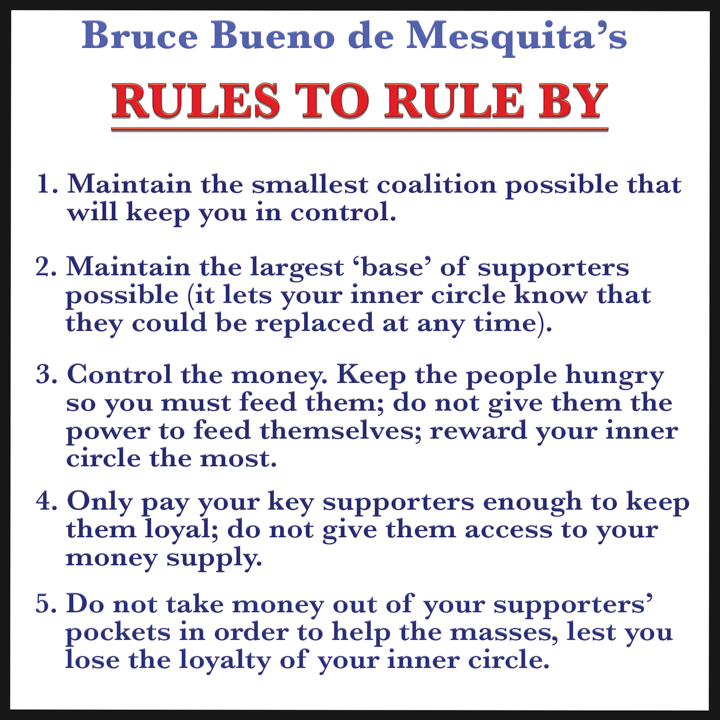
When trying to coax animals into successfully performing tricks, trainers offer rewards (“goodies”) to reinforce the desired behavior.
Someday, we may be able to utilize this method to get animals to do all our menial labor for us, simply by withholding their ‘reward’ until they successfully perform the desired task.
Likely, some liberal animal activist would eventually shut the whole thing down as cruel and unusual exploitation. Liberals.
The cravings of the human animal vary more from person to person, but through the invention of ‘money’ as a ‘medium of exchange’, people can choose the rewards they prefer, further incentivizing them to perform all manner of tricks. None of this could be possible, of course, unless the trainer had sole possession of the money, and property rights over all the “goodies.”
To understand the cravings of capitalists, we need only to follow the money.
A Little Corruption Goes a Long Way
Dictators are cheap to buy…They can be induced to trade policies the democrat wants for money the autocrat needs…to pay off his coalition.
America likes to deal directly with those at the top, but autocrats need to buy loyalty, too. Political patronage –the practice of dispensing government resources in exchange for political support, often leads to big government contracts or prominent public sector jobs. Of course, the money can flow both ways.
“Daniel Kaufmann, a senior fellow at the Brookings Institution, estimates that more than a trillion dollars is spent annually on bribes worldwide, presumably with most of it going to government officials.”
Money is an excellent gift when one does not know what to give a government official. When one is lucky enough to own the entire government, however, several money acquisition options immediately become available.
Your Tax Dollars at Work
Taxation, resource extraction, and borrowing are the foremost ways of acquiring funds for enriching a coalition. Discussions that portray taxation differently are either window dressing to make the process seem more palatable or are making arguments based on how people would like the world to work.
–Bruce Bueno de Mesquita
As the wealthy have gained control over the U.S. government, their tax rate has dropped accordingly, from 91% in the 1950s to what some estimate as 8.2% today. In America, the “winning coalition” for wealthy Caucasian oligarchs has consistently been all the poor Caucasians (in other words, ‘race’ is still a thing); the middle-class taxpayer in America has thankfully paid to subsidize the capitalist military, private business, and the wealthy party’s poor white constituents. Did you know that sixteen of the twenty states most dependent on government handouts helped vote Trump into office in 2016, even as Republicans continued to denounce the “welfare state.” Democracy, Autocracy—the difference is simply a larger list of written-down rules that do not apply to those at the top anyway—what should be most irritating is how useless language is for communicating the truth. Social Scientists would be wise to hit the mute button and keep their eyes on the money as it gets moved around the table.
In the area of resource extraction, private corporations currently have retained property rights over 26 million acres of U.S. federal land, paying a low non-use rental fee to hold it.
The U.S. government would benefit if companies actually extracted any oil, gas or minerals (they would receive a percentage of the revenue), but most companies simply hold the land as an asset on their balance sheets, in order to look financially attractive on paper, and make sure no one else gets to utilize it either; this essentially gives them monopoly power over it, should we suddenly become dependent on these fuel and mineral resources down the road.
Acquiring control of government has proven highly lucrative for U.S. corporations in the area of basic human needs; infrastructure, health care, agriculture, banking, and education—many have bypassed the concept of borrowing money, and have gone straight to getting the money for free, through contracts, grants, subsidies, bailouts, and other money acquisition schemes. While people reside on less than 4% of total U.S. land, Agribusiness utilizes 41% of it to feed their livestock, (this figure represents both grazing and feed crops—Fun Fact: cows cannot digest the corn we choose to feed them, causing them to pass methane gas into the atmosphere, inadvertently turning them into a major climate change contributor).
Taxing the poor to pay the rich has plenty of bad economic consequences, but these tend to be “in the long run”—that is, on another leader’s watch.
Bruce Bueno de Mesquita
In some ways, democracy exacerbates the problem of embezzlement, fraud, money laundering, etc., because leaders are only in power for a short amount of time, so tend to make decisions to enrich whoever paid to get them elected.
The going rate to buy a new representative job is $3.5 Million. It costs $24 million to be a Senator, and a whopping $1 billion if one wishes to become the capitalist’s puppet president.
Oligopoly: the new (more legal) Monopoly
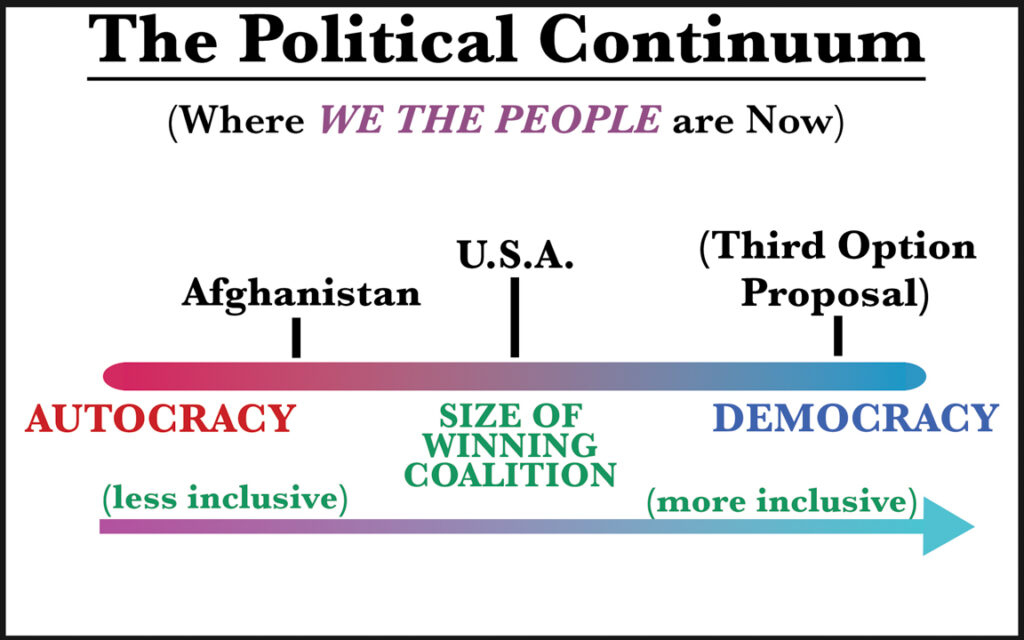
Our healthcare is $4.1 trillion a year because capitalists have started working together, collectively raising prices rather than competing against each other.
Wall Street has done the same with our housing, first crashing the housing market, then buying up the foreclosures, then renting them out at outrageous prices (which has spurred a spike in homelessness, as well as a boost in RV sales).
Companies are buying up hundreds of car dealerships, so they, too, can artificially jack up prices. This is no different than an autocrat, who shrinks the competition, gouges his own people mercilessly, and keeps a large “nominal selectorate” of “interchangeables” waiting as replacements.
Price-gouging is clearly unsustainable, but capitalism is not driven by reason, only by short-term gratification. Large chains like Costco already have plans in place to provide private security for shoppers likely to be robbed of their purchases once they exit the store. Whatever we choose to call oppression—capitalism, socialism, communism— the song remains the same; until we come to terms with our uncertainty, we will continue to fight and flee from it in a predictable manner.
3. Control Elections
Divide and conquer is a terrific principle for coming to power in a democracy.
Bruce Bueno de Mesquita
A mass form of bloc voting has evolved in American Democracy, where many citizens cast their ballots based purely on loyalty to a particular party.
According to Duverger’s Law, this is predictable; it reasons that all plurality (or winner-take-all) voting roads eventually lead to two voting blocs because:
- A) small parties have little chance to win a seat in Congress, so will expend less and less effort through time, and
- B) people fear voting for any “smaller party” because they do not want to “waste their vote.”
The divisive and polarizing political rhetoric that occurs can also be seen as a natural side-effect of representative democracy because citizens are only allowed to vote for ‘representatives’ and not for any actual policies.
Nobody wins any democracy in a political winner-take-all scenario because democracy is not something to be won or lost; it is about the reciprocal ‘rights’ that we, as a nation, choose to confer upon each other, per our original ‘mission statement.’
A government can only give Democracy. We should not allow it to be given randomly, or taken from one group to enrich another; we certainly should not be forced to compete for it amongst ourselves.
Whatever Democracy we could afford to give, it would naturally be limited to what government could sustainably guarantee to every resident. Currently, all it can afford to give us is a choice between two ineffectual candidates who cannot help us in any way.
The reason we fall for this con is that it taps into our subconscious binary coding, which cannot help but sort everything into two categories: fight or flight, good or bad, friend or foe, right or wrong; if only we were presented with a choice between either food or air—then, we might finally agree to ‘be on both sides.’
Coming to power and staying in power are the most important things in politics. And candidates who aren’t willing to cheat are typically beaten by those who are.
Bruce Bueno de Mesquita
In two-party voting, where the margins of victory are often small, parties will do just about anything to get an edge. Gerrymandering is one such rule-bending strategy, so-named in honor of Governor Elbridge Gerry of Massachusetts, who fashioned a salmon-shaped voter district to help him win re-election. Redistricting can only be done once a decade, but it offers those in control an avenue to maintain that control.
As Bruce points out, “when politicians pick who votes for them, it comes as no surprise that [many] are easily reelected and barely held accountable.”
A huge blow to progress in America has also been our outdated Electoral College, ironically created to unify two distinct points of view who nevertheless remain divided today.
Here we have an institution whose founders’ original intent [was] to ensure that the states where slavery was legal would join the United States, and that meant erecting constitutional provisions that would protect slavery. The Electoral College was one of those institutions. Here is a great example where original intent most assuredly should not guide modern-day politics.”
Bruce Bueno de Mesquita
The Electoral College is a “coalition-reducing” device, according to Bruce, because it allows less-populated states to have relatively more voting power than the rest.
Wyoming gets one vote in the Electoral College for about every 194,000 of its residents. Texas, in contrast, gets one vote in the Electoral College for about every 773,000 residents. In other words, each voter in Wyoming counts as much as four voters in Texas when it comes to choosing members of the Electoral College.
Dictator’s Handbook
Governments have a poor track record when it comes to providing service to those ‘on the edges’ economically and geographically. That being said, the Electoral College is about choosing a national leader; Democracy dictates that each citizen’s choice should carry equal weight.
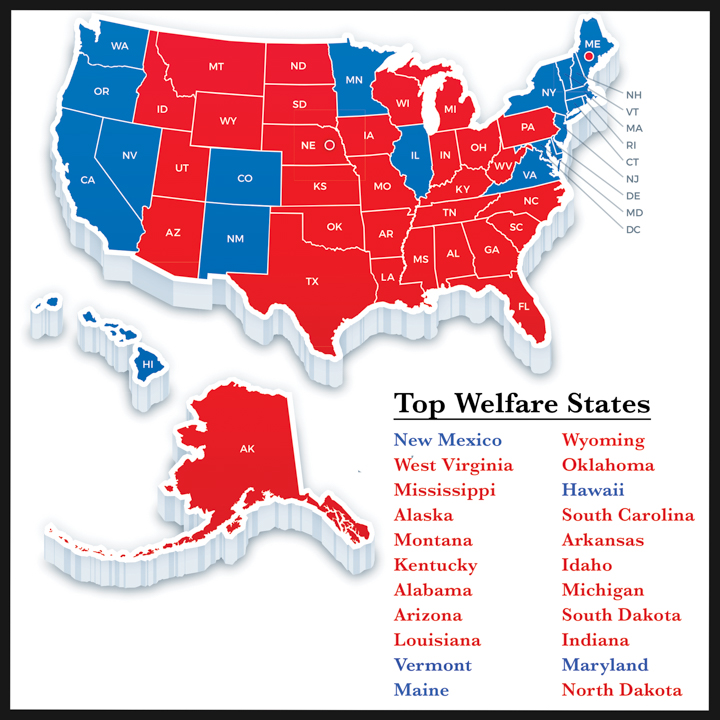
Here is the current reality, however: people are leaving poorer rural areas, and winding up in larger urban areas. More people implies more employment opportunities, but also means a demand for more goods and services.
This prompts capitalists to raise the price of everything, even though ‘economies of scale’ make it much cheaper to deliver goods to a single location.
This artificial inflation of prices is sometimes called rent-seeking (aka ‘money for nothing’), but in practice it is simply ‘price-gouging’.
As the rich get richer off the backs of these ‘urbanites’, they would need a political party who agreed to tax them less and less for it, otherwise they would have to give some of the money back that they stole through artificially inflating the price.
This is problematic, as there are now many more poorer people than richer people.
Cleverly, the party of the wealthy successfully lowers their own taxes, puts the tax burden onto the urbanites they are already gouging, then takes this money and gives as little as possible to the less-populated rural areas, in exchange for their votes. This is how the party who decries taxation (against themselves)—to allegedly eradicate welfare—subtly siphons all the welfare to their constituency.
This alone can stalemate our politics; a stalemate ensures no new regulations will occur, so capitalists can continue doing “business as usual.”. Since all states get two senators, whose terms are three times longer than district representatives (appointed based on population), they can also easily control Congressional decision-making, and allocate tax money wherever it suits them (Urbanites represent 83% of U.S. population crammed into 3.6% of the living space, leaving over 30 states for the other 17% to populate). Meanwhile, the Electoral College keeps capitalists competitive in every presidential election, with rural states receiving up to four times the electoral voting power of more densely populated states.
While the wealthy party works within the poorer states to dismantle unions—allowing employees the ‘right to work’ for low wages and no benefits—laws are also put in place to keep some people from voting at all.
The Senate filibuster is the wealthy party’s ‘ace,’ which it can choose to play at any time, to keep legislation from ever going to a vote (60 out of 100 senators must agree to vote on any proposed bill; a ‘supermajority’ is rare—the last time it happened, the Affordable Care Act got passed).
4. Control the Media
Mike Bloomberg has Bloomberg L.P. Amazon’s Jeff Bezos has the Washington Post. Mark Zuckerberg has Facebook and Instagram. Meanwhile, Elon Musk has a stake in Twitter, Warren Buffet controls BH Media Group, and Bill Gates prefers to pay several media outlets to gain influence directly, rather than own only one source; the financial oligarchs of America are here to help us redress our grievances on their personal media platforms, in exchange for the chance to peddle their products, or charge others to peddle their own.
This is capitalism’s version of democracy: sell everyone the right to free speech, money, guns—you name it, they have it in stock.
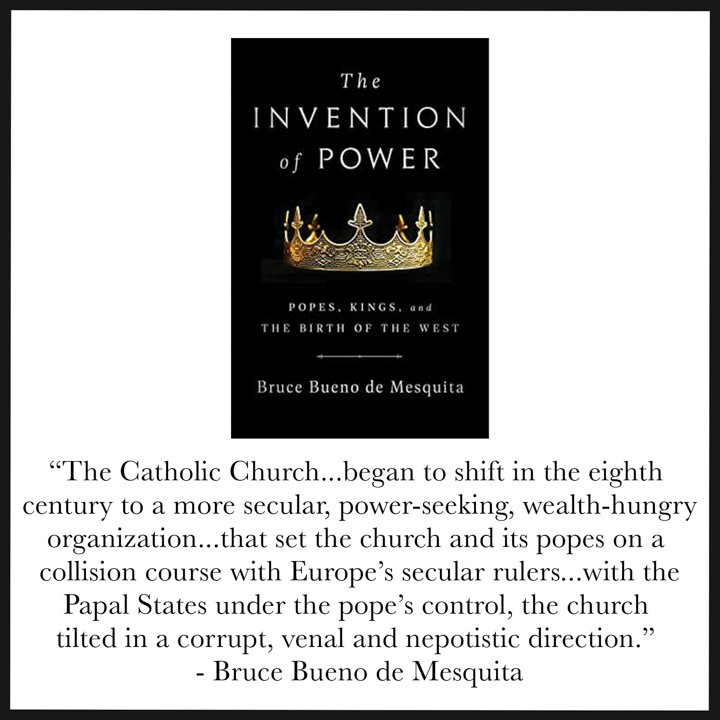
Since we cannot use our speech, money, or guns to affect any real change, we wind up using them on ourselves instead, out of frustration; the media is a great place to vent about all of this, meanwhile learning about new products algorithmically chosen to fit your particular demographic.
The church, the state, the capitalist profit-seeker; it is difficult to trust anyone with sole control of information.
A ‘democrat’ might say that “democracy dies in darkness” but allowing a press that is neither free nor unbiased to flood the market with ‘alternate facts’ and politically-biased points of view is in many ways worse than complete suppression of the media—at least the peasants can whisper the truth among themselves, rather than play telephone with a bunch of disinformation, driving us all into complete gridlock (remember, a ‘tie’ goes to the oppressor; reasonable doubt is the equivalent of victory for any guilty party in a predator’s version of justice).
5. Control Education
Who were executed as part of Saddam [Hussein’s] consolidation of power? …Professors, military officers, lawyers, judges, business leaders, journalists, religious leaders, and many other well-educated and accomplished men. For good measure, Hussein also threw in leaders of competing political parties, who, after all, might have conspired to replace him.
Bruce Bueno de Mesquita
America is no stranger to having our best and brightest gunned down in the street; luckily, most educated people are an asset in a consumer marketplace driven by ‘the next big thing’, and so they are brought into the inner circle. Today, you can find the best and the brightest working for Wall Street, pharmaceutical companies, Lockheed Martin corp., Raytheon Technologies, Boeing or Northrop Grumman Corp., or securing a gig as a professional conservative economist or a media journalist, in order to market capitalism itself. It is an offer most cannot refuse, because capitalism always keeps a large selectorate of educated people around, to let the ‘talent’ know they are easily replaceable.
Meanwhile, the private sector has been engaged in a hostile takeover of the public school system for years, and with the help of the recent pandemic, has scored a massive hit (1.2 million recently dropping out of the public system), setting the stage for education to soon become a privilege even in the U.S., and public educators “confronting a potentially harsh future of lasting setbacks in learning, hardened inequities in education and smaller budgets accompanying smaller student populations.” Conversely, private sector schools—by creating a “nominal selectorate” of “interchangeable” teachers and students—can pay teachers less and charge students more, and leave any child behind that does not ‘fit the bill’.
According to Bruce’s findings, “in the vast majority of cases autocrats are simply keeping the peasants healthy enough to work and educated enough to do their jobs.” Meanwhile, dictators “like to have their children educated at leading universities in the United States and, especially, at Oxford University in the United Kingdom…Oxford is a breeding ground for authoritarians. It certainly is the alma mater of many, including Zimbabwe’s late Robert Mugabe; the Bhutto family of Pakistan; and the kings of Jordan, Bhutan, Malaysia, and even little Tonga.” Through alumni status, generous donations, or simply having the cold hard cash to pay for it out of pocket, the wealthy continue to ensure they get first choice of American colleges.
We shouldn’t fail to notice that universities in their own right constitute small-coalition political systems with a pretty big batch of interchangeables. No surprise, then, that they behave like autocracies, favoring the rich and connected at the expense of those who lack political clout.
The Dictator’s Handbook
6. Control the Infrastructure
“Those regimes that depend on a big coalition on average make quality drinking water readily accessible to almost their entire population, and those that depend on a smaller coalition lag behind by 20 percent or more.”
Much has been written about the correlation between structural inequities, poor health outcomes, and lower socio-economic status. A capitalist economy is only as good as its infrastructure, and in places where infrastructure is lacking, so is opportunity. What has occurred in places like Flint Michigan, for instance, only underscores Bruce’s argument that access to quality infrastructure has mostly to do with whether someone is “essential” to the autocrats in charge; in a true democracy, equal opportunity would suggest that everyone receive equivalent infrastructure, yet in reality, the infrastructure is only there to serve capitalism, not people. Where money can be made, infrastructure is placed, designed to give opportunity for those with the capital to capitalize on their good fortune.
Roads are very costly to build, and it is easy to hide their true costs. This makes them a good source of graft, which in turn makes constructing them attractive.
Bruce Bueno de Mesquita
Americans drive more than 14,000 miles a year on average; two-thirds of those miles are driven to and from work, the other third are used to not only consume fuel, but likely several other products and services as well.
Therefore, 100% of transportation miles serve economic growth, yet ironically, ‘driving is a privilege’ and—even more ironically—it is a privilege for which we must pay the entire bill.
The final irony is that unlike capitalists, We the People can claim no ‘property rights’ over these purchases; apparently, all of it is merely a ‘sunk cost’ the private sector has cleverly dumped into the lap of its laborers and consumers.
In other words, driving, working, and consuming are all privileges, and We the People should be grateful to the wealthy people we have created through our labor and consumption, who could have hoarded all the resources to themselves, as in other autocracies.
It should be noted that when stories leak out about the exorbitant cost of publicly funded projects, that We the People are merely signing the check; it is the private sector we have hired who is gouging the us on the price.
As we privatize prisons, education, mass transit, health care, pension plans, etc., do not be surprised that either the quality goes down, or the cost goes up.
“Autocrats and democrats need electric grids…An excellent study showed that when governments expand reliance on a large coalition, they shift electricity pricing and availability away from policies that favor industry and toward policies that help consumers—that is, the masses instead of the wealthiest in society.” –Bruce Bueno de Mesquita
If our government was truly an institution of and by and for people—a ‘democracy’—then people would be co-owners of everything they create together; on the list would be marketplaces, the agglomeration that urbanization creates, the money that we legitimize, the federal land we protect, the infrastructure we fund and build, and the scientific research and development we financially empower—all the things our taxes purchase.
The next step would be to convert these taxes into investments, as capitalists are allowed to do with their ‘property’—in this way, We the People would at least hold a shareholder’s stake in the America we have built and maintained, and therefore gain some leverage at the political negotiation table.
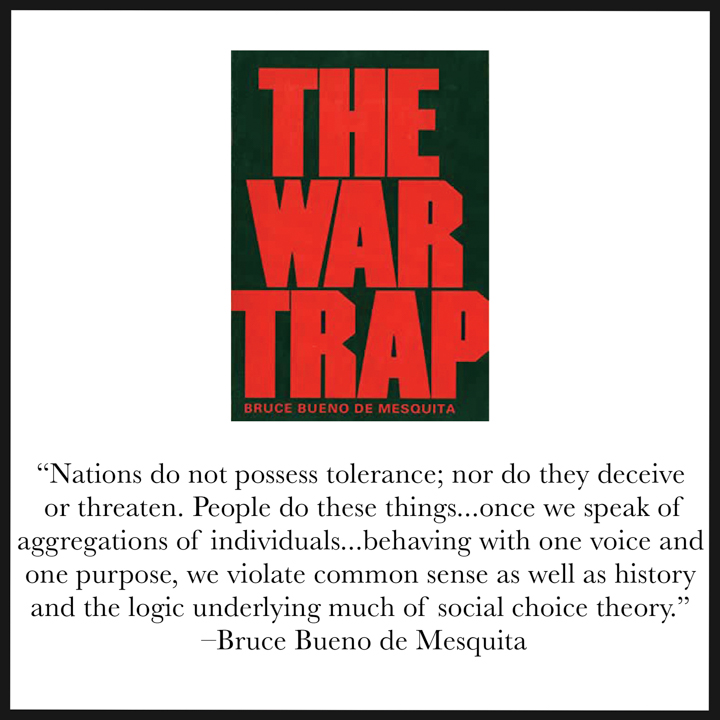
Defining the Problem
Bruce’s research confirms that ‘rational self-interest’—especially among those who sit at the top of the human food chain—leads to inequality for those at the bottom.
Even so, America decided to fashion an economic model based solely upon this theory of rational self-interest, and quite predictably, it has (among other things) strained our ecosystems, incarcerated millions, perfected the art of war, and greatly served those at the top while underserving the bottom half of the population.
It is unclear whether Capitalism was formed in ignorance of oppression, or to accommodate it, or possibly through some idealistic belief that it would be better to have capitalists in charge of us than kings or dictators, but two facts are irrefutable: it is through Capitalism that oppression continues to operate uninhibited, and has meanwhile either negated, overthrown or cleverly bypassed Democracy, rather than work to support or further it.
Again, Bruce’s research confirms that Democracy—not Capitalism—is the reason more people have been allowed to prosper, not because of its flowery language about liberty, equality, or justice, but simply because it expands the coalition of citizens needed for leaders to gain Control.
Unfortunately, Democracy only goes so far. When it tries to raise the minimum wage, Capitalism sets sail to utilize cheaper labor overseas.
- When citizens attempt to unionize at home, Capitalism buys legislation to shut it down.
- When Democracy tries to collect taxes, Capitalists hide their money in various offshore tax havens, forcing the laborers to pay the bulk of Capitalism’s military and infrastructure costs, as well as corporate bailouts and subsidies.
While Democracy calls out human rights violations, Capitalists pay off autocrats to neglect their own people, and sell off their main source of prosperity, the valuable resources upon which Capitalists build their fortunes.
To summarize: the human parasites of the world, through lazy rationalized ‘self-interest’ have drained the lifeblood out of every economic arrangement since before time was recorded.
The winners not only write history, but they also fashion the government and the economics, and will naturally choose to continue playing this game of winner-take-all because 1) they invented it, 2) they know how to win at it, 3) they know how to cheat at it, and 4) they started out owning Boardwalk and Park Place before the rest of us even got a chance to roll the dice.
The other 99% of us have survived, as all living organisms do, by adapting to our environment, no matter how oppressive. If we plot any two points in history and draw a line backwards (to the beginning), it’s a sure bet we’d find that the other one percent spent much of those early days adapting to their environments as well; likely, their oppressive nature was learned, like all human behavior, from what they witnessed around them.
In lean times, cooperation and sharing were fashionable, but as the ‘take’ got fatter, fortune began to favor the bold, and in evolutionarily predictable fashion, the big pigs pushed the little pigs aside and began eating first.
The big pigs got bigger, and the small remained small, and were forced to do the labor necessary to keep the biggest pigs well-fed, and thus the hierarchy of oppression was established. Capitalism, for all its flaws, is the most effective and efficient method yet devised for the total consumption of our planet, and even though half of us will never see our share of this take, all of us will eventually share in the misery it creates.
If we are—even partially—the ‘product of our environment’, it would stand to reason that if we needed to alter some currently self-destructive behavior within ourselves, and channel it in a less-destructive direction, perhaps a change of environment could help ‘nudge’ us that way. There is very little evidence that shows people can change themselves, but an immense amount of data that shows predictable patterns of behavior based solely on the role or position each of us plays within a society.
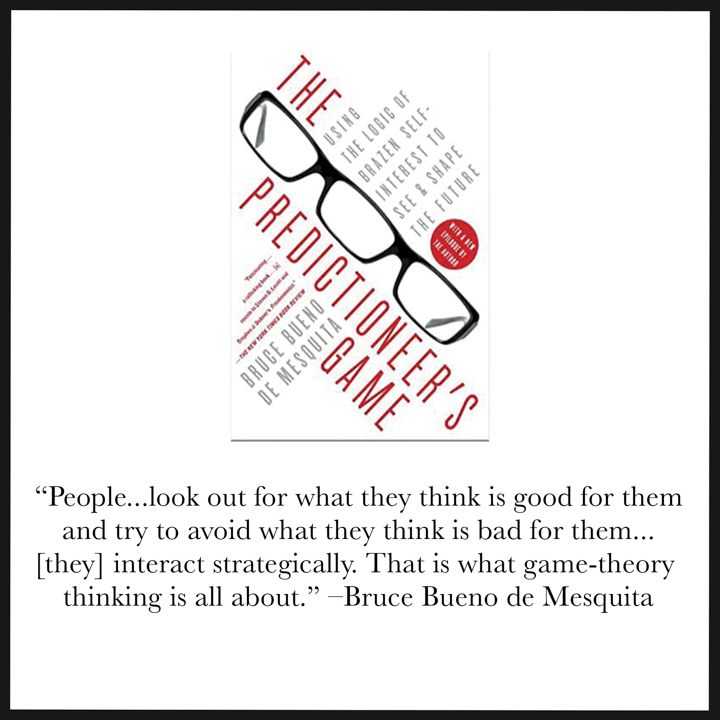
Bruce derives much of his suppositions from Game Theory, useful when understanding how people make choices that maximize their self-interest.
A decision is seen as Pareto optimal (or efficient) if it brings the best result for someone without making others worse off. The goal of The Third Option is to fashion a political / economic environment (or ‘game’) that A) allows for each person (‘agent’) to optimize his opportunity up to the point it deters others from doing the same (per Democracy), and B) make the ‘infrastructure’ of this environment more fluid, so that we—as a society—can adapt quickly to any unforeseen disruption, either in the natural environment, or within the self-imposed one (as an example, Covid or hurricanes might be a natural disruption, and pollution or Climate Change might be a self-imposed disruption, both requiring quicker response times than our current system can manage).
Most ‘non-cooperative’ Game Theory scenarios assume that ‘agents’ are only in control of making choices for themselves; if only this were true in real life. In Capitalism and other autocratic environments, unfortunately, the underlying motive is to Control as much as possible, making Democratic choices unpalatable, because they are simply not rewarded. When we evolve to the next level of reasoning, we will utilize social science theories such as Game Theory to reverse-engineer—or proactively fashion—a democratic version of economics, where Control is not only impossible to achieve, but also reaps negligible rewards compared to cooperative or interdependent action; thus, rational self-interest would no longer favor Control as a viable strategy.
Debt, incarceration, gun violence, war, inflation, poor health, political division, supply chain shortages, poverty, homelessness, etc.
—Capitalism creates problems it has no intention of solving, because scavengers need to eat, too, and once the ‘dominant’ players are finished eating, the next group will naturally seek to feed off of all the carnage left behind.
The above list of negative externalities proves nearly as lucrative as the list of goods and services that helps precipitate them, and in a ‘free market’, if we allow guns, cars, cigarettes and alcohol to exist, we better have $4.3 trillion worth of health care standing by to profit from all the ensuing misery.
When ‘profit-seeking’ is the motive, the manipulation of our natural tendencies toward addiction, hoarding, hunger, reproduction, conformity, et al, all become fair game in a mad dash for the cash.
The Great Equalizer
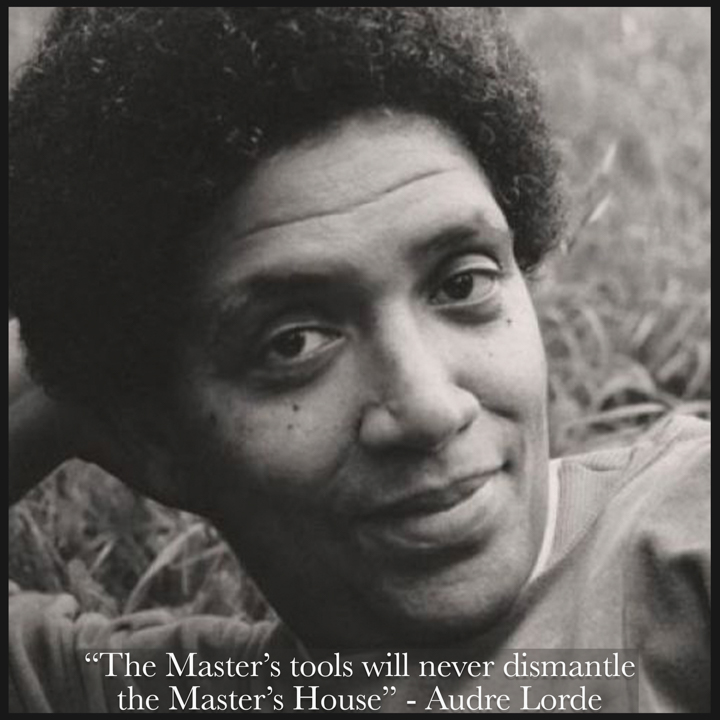
In our five-million-year war with oppression, the people have had only one victory. America’s founders—however flawed they might appear to us now—at least understood the benefits of trench warfare, and with the establishment of a United States Constitution, dug the trench where Democracy has quietly crouched these past 256 years, lying in wait until it can fulfill its final purpose.
Democracy is a weapon of the future; the founders compromised many things (including their own humanity) in order to fashion it. They knew it could never be properly utilized in their time. Human history is a broken record of people repeating the same mistake over and over: using the tools of oppressors in order to defeat oppression, which has only served to perpetuate its existence. Ignorantly, we always believe that some new version of Control is better than the old version. It does not help that we mislabel Control as ‘Power’ (perhaps on purpose?), even though they are two distinctly independent events.
Power is the potential each of us possesses to benefit others; Control attempts to hijack the Power of others and reroute it toward some ‘self’-centered agenda.
Democracy was established to keep anyone from gaining Control of another’s Power. Power is surely an asset and a resource, and hopefully a source of empowerment for others, but each of us must determine for ourselves how our Power will be disseminated.
Democracy is so heavy that it needs two-thirds of the people just to lift it up; this is why no small coalition of oppressors could ever wield it alone. It is so powerful that it only needs to be fired once; this is why it is crucial, once we advance far enough as a species to understand how to operate this weapon, that we aim it correctly the first time we fire it. The goal of The Third Option is simply to make sure our aim is true.
The Solution
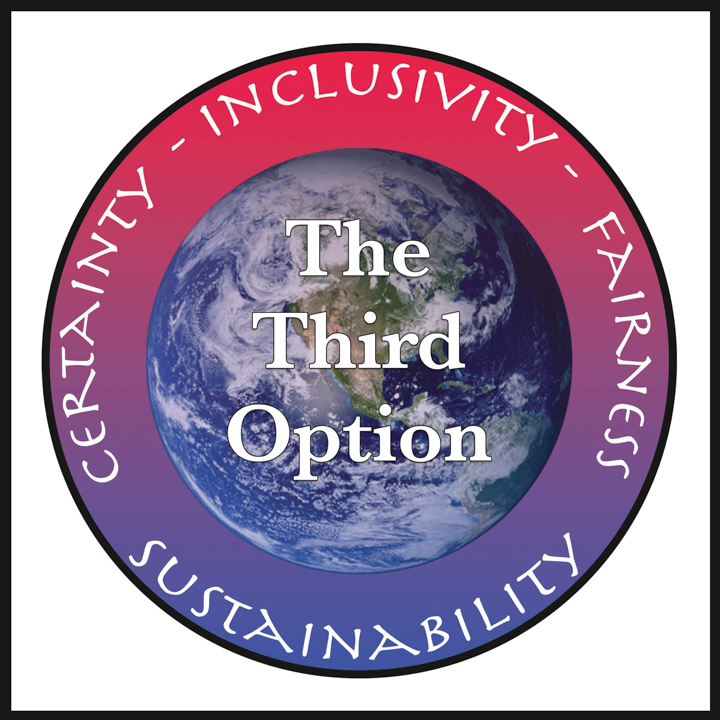
The Third Option posits that the arc of human existence is a process of evolving from a state of Control to one of Power. Power existed first, and our attempt to extract and consume that which came before us is a parasitic (or hierarchal) strategy; the fact that we practice this strategy on our own kind puts us in a special category of parasite.
It is only natural for parasites to consume their hosts; the hope is that human awareness evolves fast enough to stop ourselves short of this eventuality.
Democracy, if practiced correctly, is the self-evident truth that each equally-created person is endowed with the “unalienable” right to control themselves, and no one else; for those who seek to turn their fellow humans into ‘assets’, for example, Democracy clearly indicates that each of us already has a ‘master’. In practice, government and economics must be set up to empower people toward gaining self-control over their lives, without the ability to control anyone else’s.
While the possibilities for mastering resources and assets is finite, the possibilities for ‘self-mastery’ are endless, and in accordance with the concept of one’s ‘Liberty’.
In its simplest form, The Third Option Strategy would create a system that emphasizes Certainty, Inclusivity, Fairness, and Sustainability.
To pull this off, people’s rational self-interest must be channeled into a source of Power for everyone, and away from being a source of Control over others. In practical application, Certainty can be achieved by meeting each person’s essential needs. Inclusivity can be achieved by turning a percentage of annual GDP into residual shared dividends, tying everyone’s fates together and encouraging a collective effort to grow the economic pie for everyone. Fairness can be achieved by taxing everyone the same percentage to fund this economic growth (turning taxes into a co-owned investment), plus equally dividing whatever dividends are generated, regardless of differences in annual income (aka ‘revenue sharing’). This is Sustainable in several ways:
- It creates a circular economy, where effort generates taxes, that fund more effort, that accumulates as dividends designed to create a sustainable income at retirement age.
- Through making essential needs ‘at cost,’ utilizing economies of scale, removing the ‘middleman,’ etc., life gets affordable for everyone through lowering the cost of living, rather than unsustainably atempting to raise the minimum wage.
- By collectively producing essential needs—which currently utilize unsustainable practices in order to maximize profits—these products and services can now be made more ‘planet-friendly.’
The first step toward economic democracy is to redefine capital. The goal is to maximize its Power (by making it a measure of effort and a source of opportunity), but limit its Control.
Because too much money is being created by private entities, for private entities, the capital only accumulates at the top, where exorbitant fortunes are being made.
Money is a medium of exchange, meaning that it is worthless unless it is exchanged for something, and when someone has too much money, that something turns out to be more Control: it goes into politics (to control legislation) and large investment opportunities, which has led to ownership control of societal infrastructure and platforms (communication, housing, land, agriculture, markets, energy, health care, education, etc.)
This is forcing an unsustainable cycle of inflationary pricing, which leads to personal debt, which feeds more money creation, which filters to the top as people either pay these inflated prices, or go bankrupt trying, whereupon capitalists foreclose, buy up the assets, and sell them to those who can afford to pay these prices; those who can pay simply signal to the capitalist that ‘demand’ exists, causing them to raise their prices even further.
It is unclear what will happen when a handful of people own everything, while the mass of people cannot afford to pay for any of it. The Third Option imagines that people might start listening to The Third Option a little more closely.
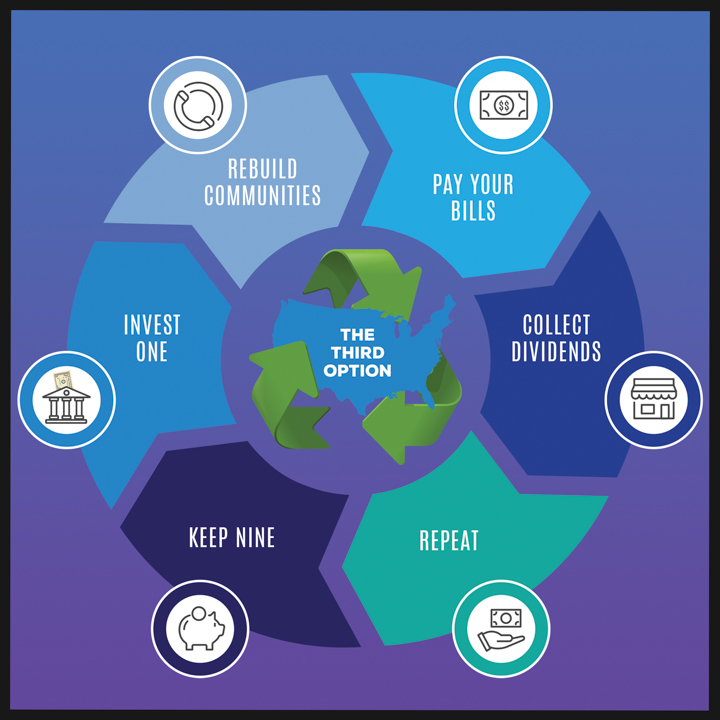
Here would be step one in The Third Option plan:
Money could no longer be created by private entities, but only through a National Public Bank, which would have branches in every community.
With a National Bank, We the People would co-own the creation of money, and would basically invest it all in ourselves.
These banks would disseminate capital fairly, based on population; the more people who work, the larger the economic pie would grow.
Money would be loaned out at 4% interest, and when returned, both principal and interest would be divided equally among all shareholders.
The bulk of the loans would go toward each community’s essential needs infrastructure: affordable housing, water, food, education and green energy infrastructure, as well as communication, transportation and health care networks.
All these platforms would be owned and operated by the community and break up any potential monopolization by larger interests seeking to gain Control. All these essential needs would be paid for the way they’ve always been paid: through utility bills, rent, registration fees, consumer purchases, etc., which would go straight into the National Bank, to cover the original ‘infrastructure’ loans.
Income tax would be reduced to a flat 10% off the top of gross revenue, deposited into the National Bank, where the entire sum would be divided equally among all living shareholders.
Next it would be deposited into each shareholder’s personal retirement account, and grow at a rate of 4% interest annually, until such time as each person chooses to get it back, in the form of an annual income stream.
There is already a federal department for all of these essential needs (except communication); their new mandate would be to spend more time in the various districts who voted for them, and manage all these essential needs at the grassroots level.
The collected loan repayments would represent our ‘retirement dividends’ and replace social security (a $1.13 trillion cost); between education, transportation, housing, health care, agriculture, and energy, another $4.7 trillion could be eliminated from the current $6.8 trillion federal budget (2021). The cost of paying for health care would drop from $4.3 trillion to only $1 trillion a year. As part of eliminating our Control over others, various health care taxes would be assessed as insurance for individual health choices that statistically raise the overall cost of U.S. health care; in this way, taxpayers would not have to pay for the poor health choices of their fellow citizens.
Meanwhile, all citizens would retain their freedom of choice, while being held more financially accountable for these choices.
Once we separate the autocrat from the economics, we can begin to achieve economic democracy. Economics can stay.
Wealthy people can stay. But the idea that a wealthy few can rule our economic platform has got to go. The same goes for all platforms that connect people together: government, markets, distribution, resources, infrastructure, healthcare, education, communication, money—any medium that connects people should not be owned by individuals, but by the society that creates them, in order to operate more effectively and efficiently.
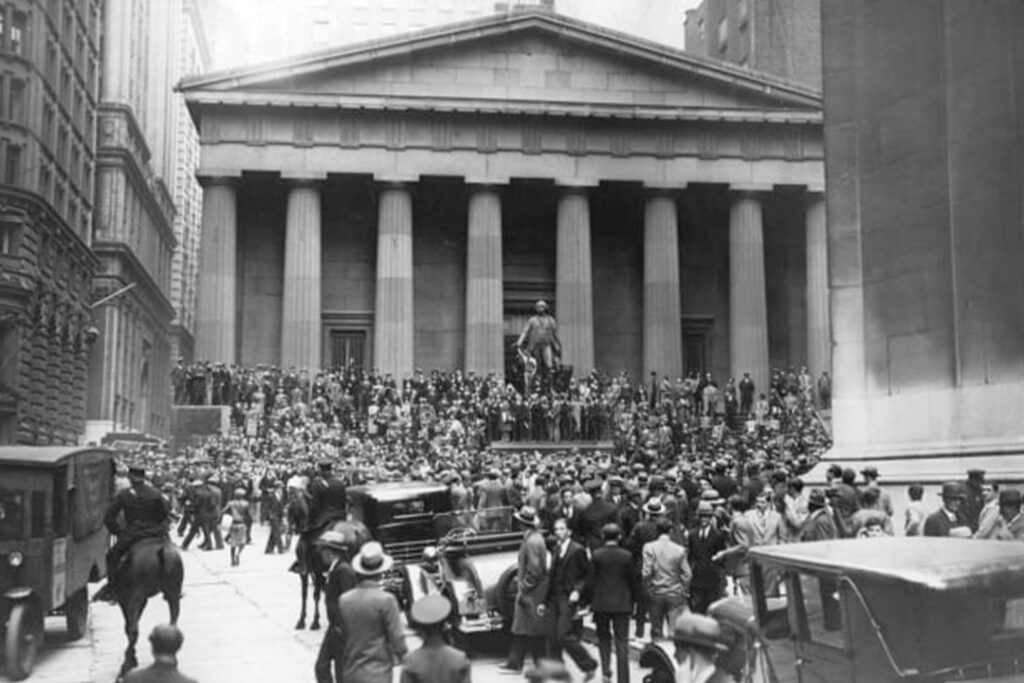
Because Control is essentially a survival strategy, it is trapped in short-term strategies; the best long-term strategy for prosperity is to hand out opportunity for the maximum number of citizens; if organized properly, this would be infinitely more cost-effective (and personally rewarding) than handing out occasional perks. People are naturally built to navigate themselves toward more Certainty—rulers just need to organize them (per economics) and get out of their way.
In a predator’s (aka oppressor’s) version of democracy, we are forced to endlessly coalesce in wearisome coalitions to battle the status quo; every little bit of ground gained gets walked back quietly in subsequent years, until our indignation grows large enough to battle once again for fairness. It is time to raise this weapon of Democracy together, and through our own volition—or ‘free will’—relinquish control of Control, and finally clear this hurdle to human progress that has blocked our path to Power these past centuries.
While the National Public Bank is a crucial first step in reestablishing Democracy in the United States, this is only one of many steps needed. For solutions concerning Health Care, Education, Infrastructure, Foreign Policy and more, visit 3rdOptionParty.org or peruse other articles on our Forebrain Underground site, designed to break down all Third Option policy.
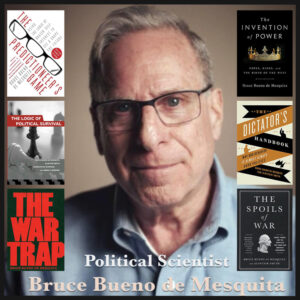
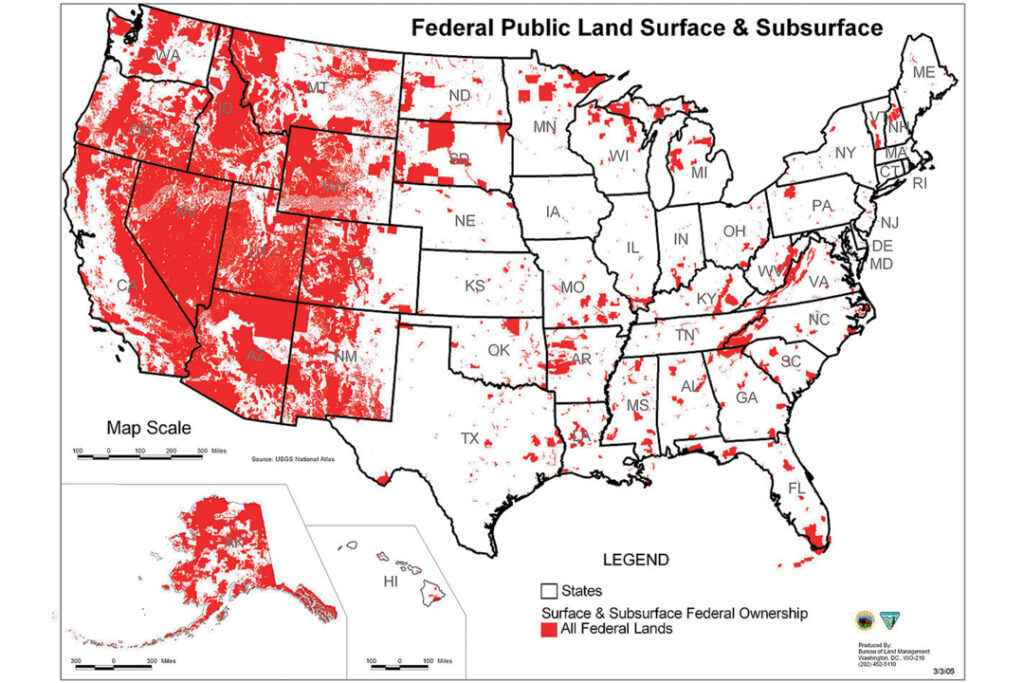
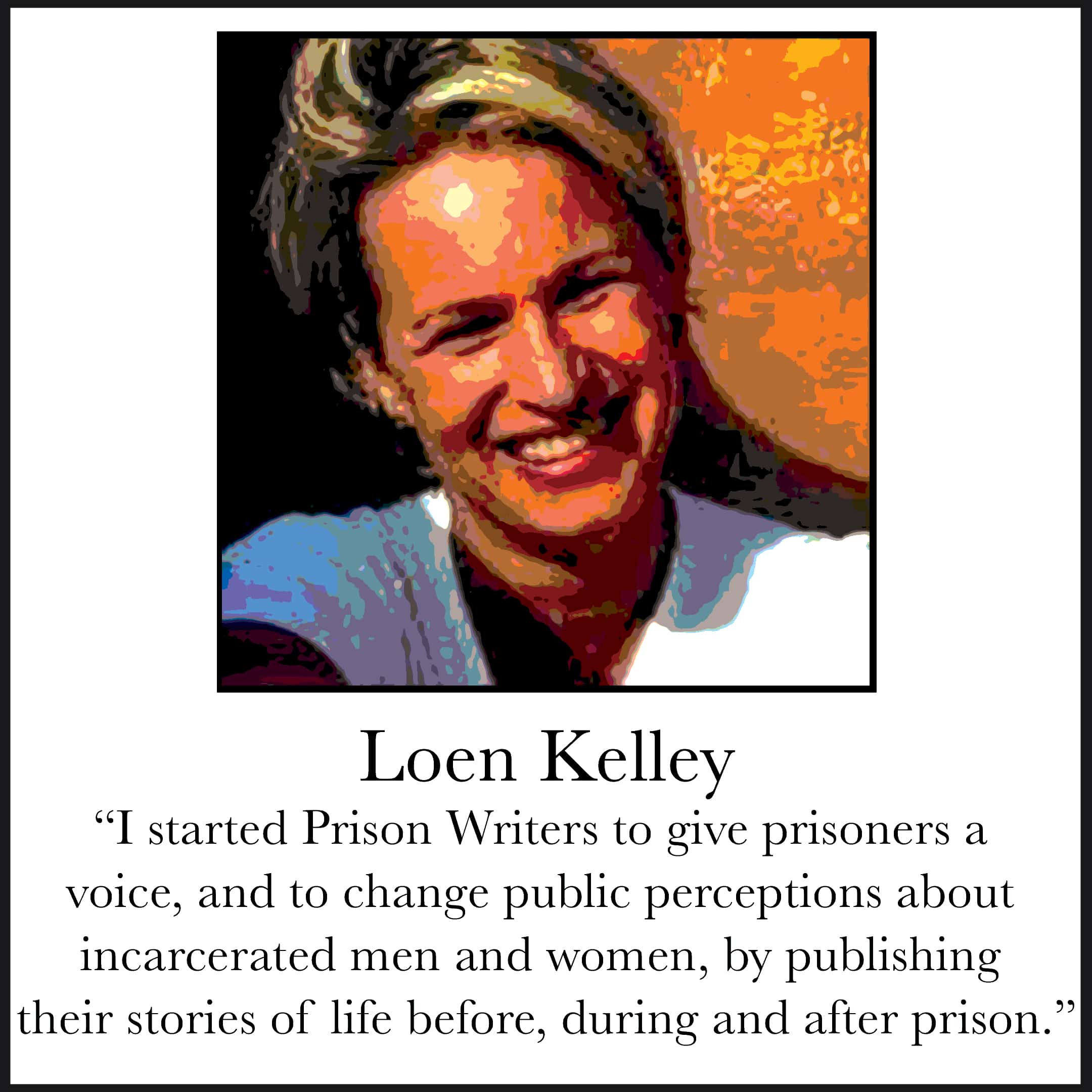 Loen Kelley: From True Crime to True Rehabilitation
Loen Kelley: From True Crime to True Rehabilitation